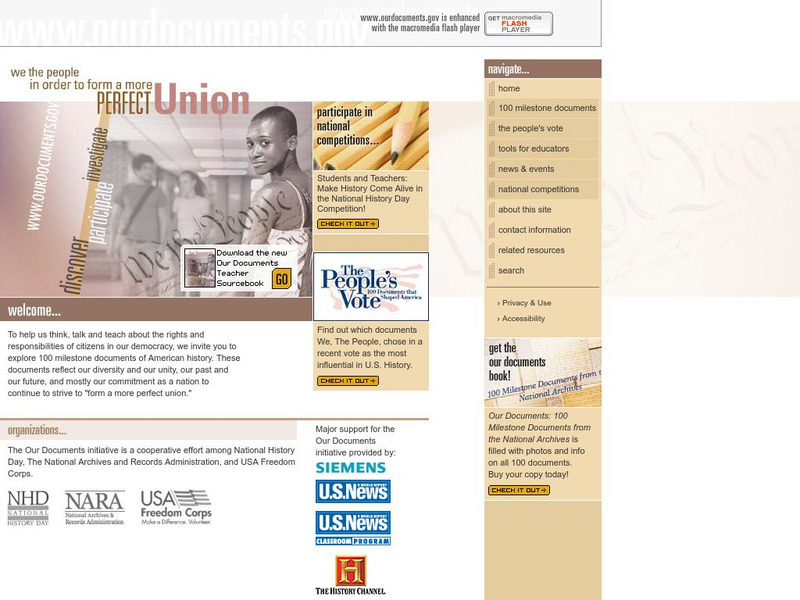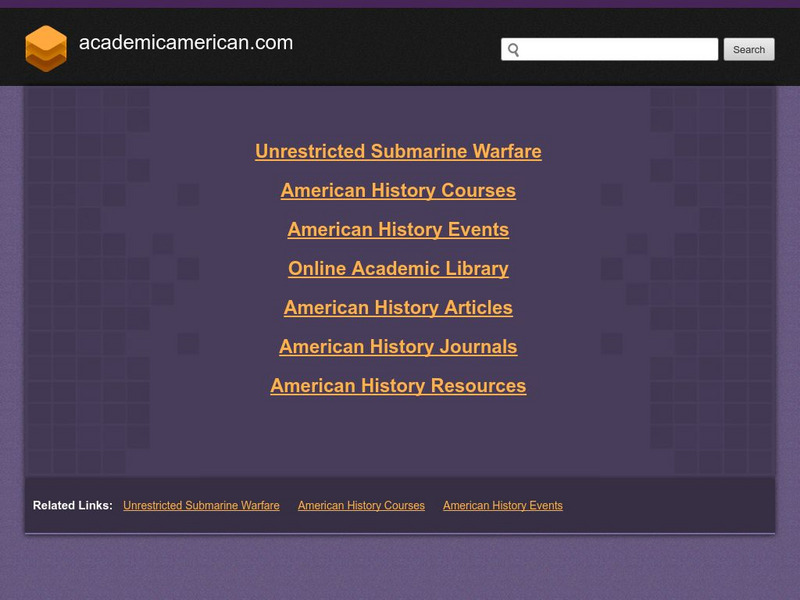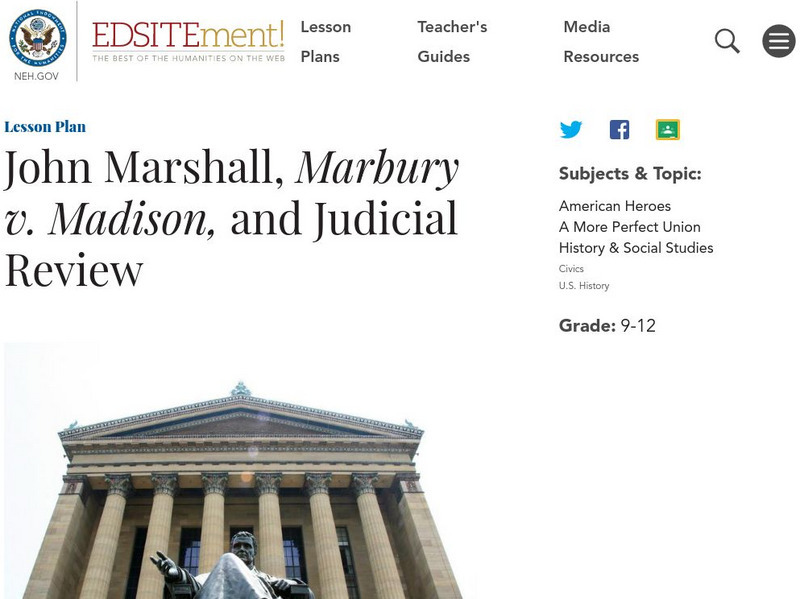Curated OER
Informal Amendment
Informal Constitutional amendments are the focus of this review worksheet, which covers the circumstances and methods by which Congress may informally amend the Constitution. The format of this worksheet would lend well to a homework...
Curated OER
Marbury v. Madison (1803)
Students examine federalism and judicial review. In this Supreme Court lesson, students examine primary documents from Marbury v. Madison and discuss the implications of the decision.
Curated OER
Signed, Sealed and Delivered: Marbury v. Madison and an Independent Judiciary
Students research the judiciary branch of government, the way in which judges are appointed and the apparent loopholes and remedies in the legal process.
Curated OER
The Industrial Revolution
Eighth graders examine the time period of the Industrial revolution in American history. In this American History lesson, 8th graders read the chapter on this time period. Students create a presentation on this time period to teach...
Curated OER
History of Supreme Court
Students study the role of the U.S. Supreme Court in U.S. history. They explore current events about the U.S. Constitution and discuss the Marbury v. Madison case from 1803. They identify the term "judicial review" and judicial...
University of Groningen
American History: Documents: The Marshall Cases: Marbury v. Madison
The text of the famous Supreme Court decision, Marbury v. Madison, is presented here.
US National Archives
Our Documents: A National Initiative on American History, Civics, and Service
Our Documents is home to one hundred milestone documents that influenced that course of American history and American democracy. Includes full-page scans of each document, transcriptions, background information on their significance, and...
OpenStax
Open Stax: Partisan Politics
By reading this section of a chapter on "The New Republic", students will be able to identify key examples of partisan wrangling between the Federalists and Democratic-Republicans, describe how foreign relations affected American...
Annenberg Foundation
Annenberg Learner: Democracy in Action. Federalism: u.s. V. the Sates
U.S. v. the States delves into the ongoing constitutional dilemma between the federal government and individual state governments illustrated through Video on Demand, activities, readings, etc.
Other
Age of Jefferson and Jackson:john Marshall: The "Man Who Made the Court Supreme"
Read a thorough essay discussing the many important decisions handed down by the Supreme Court while John Marshall was Chief Justice. There are hyperlinks to each of the decisions.
Thomson Reuters
Find Law: History of the Supreme Court
This site gives insight into both the creation of the U.S. Supreme Court as well as its transformation to its present state. Throughout the text links can be found which lead to various Supreme Court topics and information.
iCivics
I Civics: Curriculum Unit Landmark Library
This library of mini-lessons targets a variety of landmark cases from the United States Supreme Court and includes a one-page reading and a one-page activity.
This Nation
This Nation: Marbury v. Madison, 5 u.s. 137 (1803)
This resource provides the full text of the Supreme Court's decision in this landmark case, written by John Marshall.
National Endowment for the Humanities
Neh: Edsit Ement: John Marshall, Marbury v. Madison, and Judicial Review
In this lesson plan, students will consider "John Marshall, Marbury v. Madison, and Judicial Review-How the Court Became Supreme." The plan includes worksheets and other student materials that can be found under the resource tab.
Tom Richey
Tom richey.net: The Marshall Courts: Revenge of the Federalists [Ppt]
Presents key ideas for examining the impact of Supreme Court decisions under Chief Justice John Marshall on the powers of the federal government. Includes an activity at end of presentation.
iCivics
I Civics: Rule of Law
Students learn about the rule of law and how it protects individual rights and freedoms. By performing short, scripted skits that illustrate what life might be like without the rule of law, students identify six factors that make up the...
Annenberg Foundation
Annenberg Classroom: Executive Privilege
Check out this interactive timeline on excutive privilege in the United States.
PBS
Wnet: Thirteen: The Supreme Court: Landmark Cases: Marbury v. Madison (1803)
PBS features a summary of the landmark Supreme Court case of Marbury v. Madison, which deals with the principle of "judicial review." Opinion written by Chief Justice John Marshall.
Cool Fire Technology
Cool Fire Technology: Supreme Court Decisions
A listing of the most significant Supreme Court cases in the nineteenth and twentieth centuries with brief summaries of how they impacted on federalism.
Illinois Institute of Technology
Oyez Project: Marbury v. Madison (1803)
The U.S. Supreme Court case that established the precedent for judicial review is detailed, with an abstract providing a concise summary and a record of the justices that sat on the court at that time.
Other
4 Law School: Marbury v. Madison
This article breaks down the facts of the Marbury v. Madison case, and briefly summarizes the Justices' opinions.
Thomson Reuters
Find Law: u.s. Supreme Court: Marbury v. Madison (1803)
This resource contains the full text of the 1803 Supreme court case, Marbury v. Madison opinion.
Social Studies for Kids
Social Studies for Kids: The Supreme Court
The Supreme Court is the highest in the land. It has nine members and decides whether laws are unconstitutional. It handles appeals from federal courts or state supreme courts. Learn more about how it works and some famous Justices.
















![Tom richey.net: The Marshall Courts: Revenge of the Federalists [Ppt] PPT Tom richey.net: The Marshall Courts: Revenge of the Federalists [Ppt] PPT](https://d15y2dacu3jp90.cloudfront.net/images/attachment_defaults/resource/large/FPO-knovation.png)




